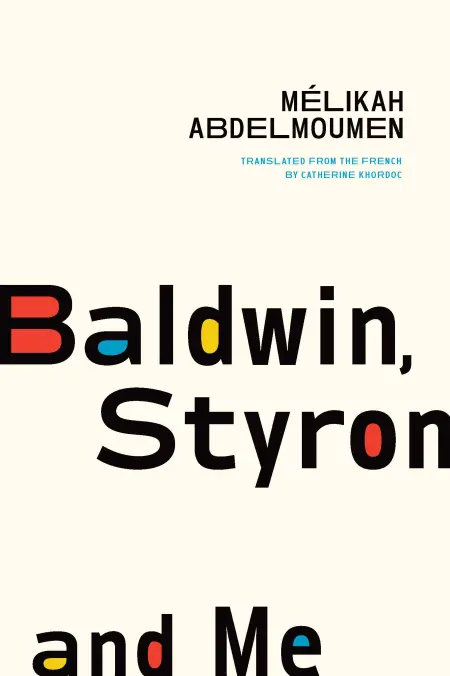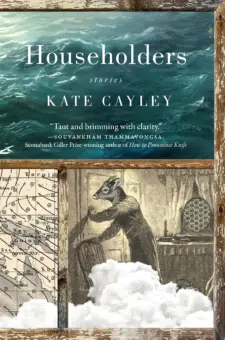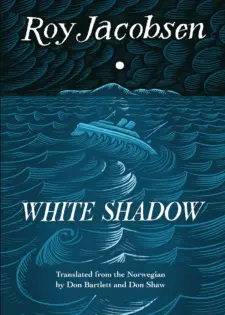Description
Shortlisted for the 2026 Andrew Carnegie Medal for Excellence in Nonfiction • Finalist for the 2025 Governor General’s Literary Award in Translation • Finalist for the 2025 John Glassco Translation Prize • A Globe 100 Best Book of 2025 • A CBC Books Best Canadian Nonfiction Book of 2025 • A Quill & Quire Notable Book of 2025
An unlikely literary friendship from the past sheds light on the radicalization of public debate around identity, race, and censorship.
In 1961, James Baldwin spent several months in William Styron’s guest house. The two wrote during the day, then spent evenings confiding in each other and talking about race in America. During one of those conversations, Baldwin is said to have convinced his friend to write, in first person, the story of the 1831 slave rebellion led by Nat Turner. The Confessions of Nat Turner was published to critical acclaim, winning the Pulitzer Prize in 1968, and also creating outrage in part of the African American community.
Decades later, the controversy around cultural appropriation, identity, and the rights and responsibilities of the writer still resonates. In Baldwin, Styron, and Me, Mélikah Abdelmoumen considers the writers’ surprising yet vital friendship from her standpoint as a racialized woman torn by the often unidimensional versions of her identity put forth by today’s politics and media. Considering questions of identity, race, equity, and the often contentious public debates about these topics, Abdelmoumen works to create a space where the answers are found by first learning how to listen—even in disagreement.
Praise for Baldwin, Styron, and Me
“Baldwin, Styron, and Me is an intellectual reflection that serves as a valuable contribution to the current debates about race, equity and identity.”
—Anita Snow, Associated Press
“Abdelmoumen’s work . . . demonstrates the good faith conversations being held within a cultural scene that is both local and transnational in its outlook.”
—Amanda Perry, Literary Review of Canada
“For the person who treats literary friendships like high-stakes contact sports.”
—BOMB
“Abdelmoumen’s entanglement with Baldwin and Styron throughout the years distinguishes her retelling. The book unfurls as an intertextual love story, combining memoir, correspondence, dramatic monologues, and quotations from the authors’ work . . . The formal innovation of Baldwin, Styron, and Me captures the risk inherent to both making art and forming relationships.”
—Faith Paré, Montreal Review of Books
“What Abdelmoumen has written is important and very timely. It is also . . . wonderfully reassuring to read this book, about two men who overcame their ancestry and social differences to create a lasting friendship. They have lessons to teach us, if we choose to listen . . . An enthralling read of enormous value.”
—Ottawa Review of Books
“Mélikah Abdelmoumen’s treatment of the controversy, first published in Quebec as Baldwin, Styron, et moi, is personal, well researched, and highly readable.”
—Kenneth Whyte, SHuSH
“An intriguing set of essays by a leading Quebec writer who explores the conflicted legacies of William Styron and James Baldwin to reflect on identity politics in the contemporary world.”
—Michael Cronin, Irish Times
“Abdelmoumen’s book suggests that failure might be productive, that risks need not always pay off to create value, that friction and disagreement can lead to necessary, ongoing conversations. By knitting together this literary history with her own personal experiences, Abdelmoumen has created something new and vital.”
—Clementine Oberst, Miramichi Reader
“Original, exceptional, thought-provoking.”
—Midwest Book Review
“In this insightful memoir, the first of her books to appear in English, Abdelmoumen reflects on race, ethnicity, cultural appropriation, and her own multiple identities . . . A thoughtful, timely contribution to a controversial debate.”
—Kirkus Reviews
“Part memoir, part literary criticism, part admiring portrait of Baldwin, one of the author’s heroes, Abdelmoumen’s book resonates clearly with our own contentious moment.”
—Steven W. Beattie, Quill & Quire
“[T]his is a fascinating meditation on how disparate writers can stimulate each others’ creativity and on the pitfalls of cross-cultural art.”
—Booklist
“Pragmatic, emotional, timely, and urgent, Baldwin, Styron and Me is unlike anything I’ve read, and is just the sort of book that begs translation in as many languages as possible.”
—Scout Magazine
[Baldwin, Styron and Me] is a valuable examination of certain points of dissension or disagreement ongoing in our culture.”
—Steven W. Beattie, That Shakespearean Rag
“Mélikah Abdelmoumen has painted an intimate and compelling portrait of what it means to live on the frontier between opposing communities. She has also birthed a personal and courageous meditation on the unexpected and striking friendship between two great American writers. In this polarized world, Baldwin, Styron and Me stands out as a polished gem. It reminds us to meet and befriend our neighbours—all of them!”
—Lawrence Hill, author of The Book of Negroes
“What a joy it was to get to know Mélikah and her family through this book. It felt like visiting old friends. Through a personal lens Mélikah also reintroduces an old acquaintance in Baldwin, who I love and admire as deeply as her, and a less familiar character in Styron. In exploring this relationship between two writers, so different yet sharing the experience of writing, she reveals a new way to understand both this moment and our own relations. Intellectually engrossing and tenderly written this book is a balm for this time and a welcome visit with new and old relations.”
—Jesse Wente, author of Unreconciled: Family, Truth, and Indigenous Resistance
“Mélikah Abdelmoumen’s richly informed writing gives real hope to a world divided in its ideological stances and political positions. She reminds us that if the grandson of a slave and the grandson of a slave owner can reach beyond the bounds of an unfettered, scantly imagined humanism to find common ground, respect, and friendship—who are we not to?”
—Okezie Nwoka, author of God of Mercy
“A truly relevant essay from one of the greatest Quebec thinkers of our time, who reflects on both the question of cultural appropriation and artistic freedom with great singularity and refreshing freedom.”
—Radio-Canada
“In this rich and fascinating essay, Mélikah Abdelmoumen criticizes aggressive radicalism, advocating instead dialogue and empathy. With the help of Baldwin and Styron, the author allows us to see that dialogue is not only possible, but necessary.”
—La Gazette de la Mauricie









